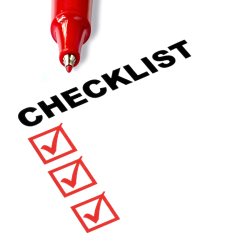Best Practices for Using the HR Audit Checklist

However, there is a good way to keep your employees on the ball and make sure that you’re heading up a well-oiled machine. Regular HR Audits will ensure that not only is your existing staff compliment living up to its potential, but that you retain those employees as well.
When it comes to performing an audit, it is important to remember that while time consuming, an audit is an investment in your most critical resource—your staff! It gives you an opportunity to figure out where productivity might be held up, where training is required, and where adjustments to staffing levels might be needed. Regular audits are a great way to keep things humming along nicely and keeps your staff educated, informed and most importantly, accountable.
Among the items that will need to be included in your HR audit checklist, nine are the backbone of your department and will give you an accurate view of how the division is running.
Starting with employee files and accurate record keeping, you will want to ensure that all staff files are up to date with the latest information. This is a good time to check and see if first aid and CPR licenses have expired, or if you have the latest version of an employee’s professional designation—for instance, a nursing license.
Check with HR generalists and recruiters to help audit the recruitment procedures and get a good handle on what the process is and how it is carried out. The entire recruitment process from start to finish should take no more than 2 or 3 weeks.
While you’re at it, employee job descriptions should all be up to date. All job descriptions need to be signed by the employee to ensure that they are well aware of their responsibilities.
Remuneration will be a good place for an audit to occur, as this ensures that raises are provided in accordance with both best practices and company policy. Whether you give performance related bonuses or a cost of living increase, reviewing the compensatory structure is sure to give you a clear picture of where your operational expenses are going.
Bringing up the rear are performance management, employee training, benefits administration and workers compensation, which includes workplace health and safety. These nine combined will give you the best outlook on how efficient your department is.
Compliance with employment law is an important part of the audit process, as HR is based around it. Consider an audit a learning opportunity for your employees to either educate them on legislative changes, or show them where processes could be improved.
One especially important part of employment law actually starts at the beginning of the HR process with recruitment. Informing your staff of human rights changes as well as labor law around discrimination will maintain equilibrium.

